Summer reading 2022
Get our Dean's top tips for summer reading now
Looking for a good management book?
You’ll discover the most recent management bestellers on diverse topics on this page. All titles are great reads strongly recommended by our Dean Professor Marion Debruyne.
All books can be borrowed from the Vlerick library.

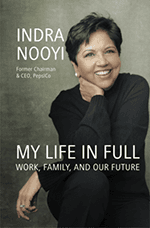
For a dozen years as one of the world’s most admired CEOs, Indra Nooyi redefined what it means to be an exceptional leader. The first woman of colour and immigrant to run a Fortune 50 company — and one of the foremost strategic thinkers of our time — she transformed PepsiCo with a unique vision, a vigorous pursuit of excellence, and a deep sense of purpose. My Life in Full offers a first-hand view of Nooyi’s legendary career and the sacrifices it so often demanded.
- Title: My life in full : work, family and our future
- Author: Nooyi, I
- Library Link: My life in full : work, family and our future / Indra Nooyi.
- ISBN: 9780349426129 (hbk.)
- Year: 2021
- Publisher: London : Piatkus
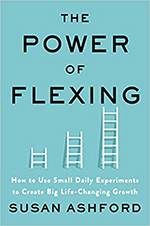
Sue Ashford, the chair of the Management and Organizations group at the Ross School of Business introduces Flexing - a technique individuals, teams, and entire organisations can use to learn, grow, and develop their skills and knowledge with every new project, work assignment, and problem. Flexing empowers you to embrace any challenge and adapt to any change, yielding practical, valuable takeaways that ensure growth.
- Title: The power of flexing : how to use small daily experiments to create big life-changing growth
- Author: Ashford, S
- Library Link: The power of flexing : how to use small daily experiments to create big life-changing growth / Susan J. Ashford.
- ISBN: 9780063011571
- Year: 2021
- Publisher: New York : Harper Business, an imprint of HarperCollinsPublishers
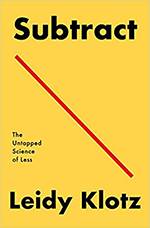
We pile on ‘to-dos’ but don’t consider ‘stop-doings’. We create incentives for good behaviour, but don’t get rid of obstacles to it. We collect new-and-improved ideas, but don’t prune the outdated ones. Every day, across challenges big and small, we neglect a basic way to make things better: we don’t subtract. But we have a choice - our blind spot need not go on taking its toll. Subtract arms us with the science of less and empowers us to revolutionise our day-to-day lives and shift how we move through the world. More or less.
- Title: Subtract : the untapped science of less
- Author: Klotz, L
- Library Link: Subtract : the untapped science of less / Leidy Klotz.
- ISBN: 9781250249876/9781250249869
- Year: 2021
- Publisher: New York, NY : Flatiron Books
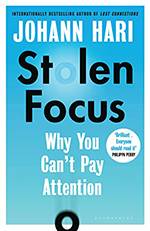
Teenagers can focus on one task for only sixty-five seconds at a time, and office workers average only three minutes. Like so many of us, Johann Hari was finding that constantly switching from device to device and tab to tab was a diminishing and depressing way to live. He tried all sorts of self-help solutions - even abandoning his phone for three months - but nothing seemed to work. So Hari went on an epic journey across the world to interview the leading experts on human attention - and he discovered that everything we think we know about this crisis is wrong. Crucially, Hari learned how we can reclaim our focus - as individuals, and as a society - if we are determined to fight for it.
- Title: Stolen focus : why you can't pay attention
- Author: Hari, J
- Library Link: Stolen focus : why you can't pay attention / Johann Hari.
- ISBN: 9781526620224 (hbk.)
- Year: 2022
- Publisher: London : Bloomsbury
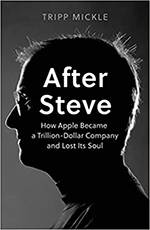
Author Tripp Mickle spoke with more than 200 current and former Apple executives, as well as figures key to this period of Apple’s history, including Trump administration officials and fashion luminaries such as Anna Wintour while writing After Steve. His research shows the company’s success came at a cost. Apple lost its innovative spirit and has not designed a new category of device in years. Ive’s departure in 2019 marked a culmination in Apple’s shift from a company of innovation to one of operational excellence, and the price is a company that has lost its soul.
- Title: After Steve : how Apple became a $2 trillion dollar company and lost its soul
- Author: Mickle, T
- Library Link: After Steve : how Apple became a $2 trillion dollar company and lost its soul / Tripp Mickle.
- ISBN: 9780008527839 (hbk.)
- Year: 2022
- Publisher: London : HarperCollinsPublishers
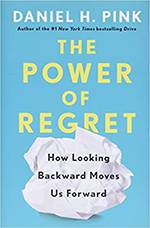
Everybody has regrets, Daniel H. Pink explains in The Power of Regret. They’re a universal and healthy part of being human. And understanding how regret works can help us make smarter decisions, perform better at work and school, and bring greater meaning to our lives. Drawing on research in social psychology, neuroscience, and biology, Pink debunks the myth of the “no regrets” philosophy of life. And using the largest sampling of American attitudes about regret ever conducted as well as his own World Regret Survey - he lays out the four core regrets that each of us has. These deep regrets offer compelling insights into how we live and how we can find a better path forward.
- Title: The power of regret : how looking backward moves us forward
- Author: Pink, D
- Library Link: The power of regret : how looking backward moves us forward / Daniel H. Pink.
- ISBN: 9780735210653
- Year: 2022
- Publisher: New York : Riverhead Books
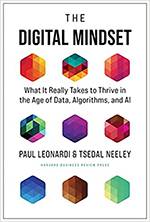
The digital revolution is here, changing how work gets done, how industries are structured, and how people from all walks of life work, behave, and relate to each other. To thrive in a world driven by data and powered by algorithms, we must learn to see, think, and act in new ways. We need to develop a digital mindset. This book shows you how. With a digital mindset, you'll ask the right questions, make smart decisions, and appreciate new possibilities for a digital future.
- Title: The digital mindset : what it really takes to thrive in the age of data, algorithms, and AI
- Author: Leonardi, P
- Library Link: The digital mindset : what it really takes to thrive in the age of data, algorithms, and AI / Paul Leonardi and Tsedal Neeley.
- ISBN: 9781647820107
- Year: 2022
- Publisher: Boston, Massachusetts : Harvard Business School Publishing Corporation
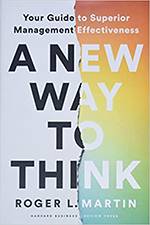
Roger Martin noted that almost every executive he talked had a ‘model’ - a framework or way of thinking that guided their strategy and activities. But these models tended to become automatic, so much so that when one didn't work, the typical response was just to apply it again—with greater enthusiasm. Martin took a fresh, critical approach to helping. When company leaders came to him with fundamental questions, his first response was to break the spell of the current model with a memo articulating a new way to think about the problem at hand and a more powerful and effective way to overcome it.
Over time, these ideas worked their way into Martin's many Harvard Business Review articles. Now, for the first time, they appear together in A New Way to Think.
- Title: A new way to think : your guide to superior management effectiveness
- Author: Martin, R
- Library Link: A new way to think : your guide to superior management effectiveness / Roger L. Martin.
- ISBN: 9780393867756
- Year: 2022
- Publisher: New York, NY : W. W. Norton & Company
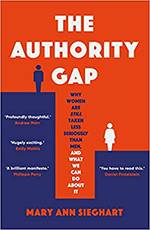
The Authority Gap provides a startling perspective on the unseen bias at work in our everyday lives, to reveal the scale of the gap that still persists between men and women. Marshalling a wealth of data with precision and insight, and including interviews with pioneering women Mary Ann Sieghart exposes unconscious bias in this fresh, feminist take on how to address and counteract systemic sexism in ways that benefit us all.Title: The authority gap : why women are still taken less seriously than men, and what we can do about it
- Author: Sieghart, M
- Library Link: The authority gap : why women are still taken less seriously than men, and what we can do about it / Mary Ann Sieghart.
- ISBN: 9780393867756
- Year: 2022
- Publisher: New York, NY : W. W. Norton & Company
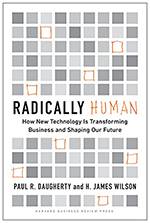
In their groundbreaking book, Human + Machine, the authors showed how leading organisations use the power of human-machine collaboration to transform their processes and their bottom lines. Now, those companies and other pioneers across industries are tipping the balance even more strikingly toward the human side with technology-led strategy that is reshaping the very nature of innovation.
In Radically Human, Daugherty and Wilson show this profound shift, fast-forwarded by the pandemic, toward more human—and more humane—technology. Artificial intelligence is becoming less artificial and more intelligent.
- Title: Radically human : how new technology is transforming business and shaping our future
- Author: Daugherty, P
- Library Link: Radically human : how new technology is transforming business and shaping our future / Paul R. Daugherty, H. James Wilson.
- ISBN: 9781647821081
- Year: 2022
- Publisher: Boston, MA : Harvard Business Review Press
